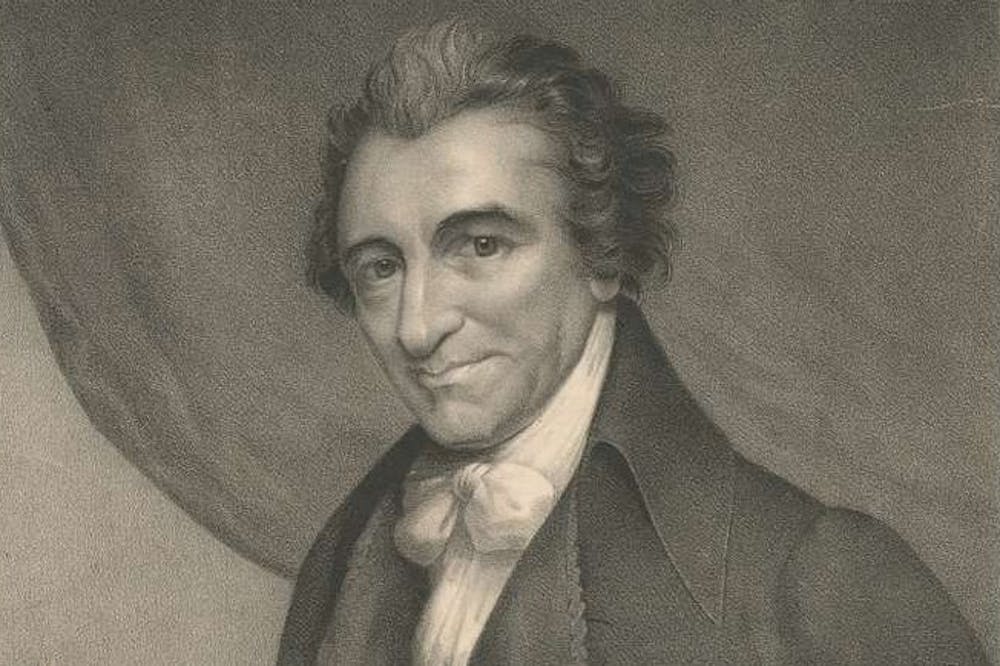Aside from the fireworks, parades, and barbecues, July 4th is a celebration of the great Enlightenment ideas that led to the founding of this country. Many of these ideas, including a nation built on a republic, freedom of speech, and the entitlement of every man to life, liberty, and the pursuit of happiness, were revolutionary and progressive at the time and are still a cause for pride among many Americans today.
The Founding Fathers and their accomplishments have been used in American schools as a symbol of American excellence that has been ingrained in students across America. In recent years, there have been attempts to contextualize America’s founding and highlight the Founding Fathers’ regressive ideas and hypocrisies that are often lesser known to most Americans. These efforts have at the very least been successful in getting Americans to question the eminence of the Founding Fathers and to be skeptical of equating the Founding Fathers with liberal democracy. However, I think it is beneficial to look at one Founding Father whose ideas are still progressive even by today’s standards. Thomas Paine, most well-known as the author of "Common Sense," supported ideals that closely align with what we would associate with social democracy today.
In his pamphlet "Agrarian Justice," Paine lays out a social welfare scheme, a universal baseline of financial support that would allow young Americans to start life off on the right foot and serve as a pension for the elderly and disabled. By definition, this is called a universal capital grant, but based on its intentions, it was a precursor to the more well-known idea of a universal basic income. His proposed welfare state would be funded by a wealth and estate tax. He justified this by acknowledging the inherent advantages to wealth accumulation that landowners had, stating that natural resources were the property of all mankind and thus the fruits of their utility should be reaped by all Americans.
In his "Rights of Man" essays, Paine furthers his critique of the zero-sum game of wealth accumulation, stating, “One extreme produces the other: to make one rich many must be made poor; neither can the system be supported by other means.” In addition to his proposed social welfare scheme, he also argues for government-provided housing and jobs with no questions asked in the form of workhouses.
Many of these ideas are only slowly gaining popularity with the American public as now most people support some form of a wealth tax and universal basic income, but these policies have not gained any real traction in Washington. Housing for all and a federal jobs guarantee have only been proposed by progressives like Bernie Sanders but are still quite foreign ideas in the mainstream.
Although many of Paine’s ideas still are not commonplace in the US, some have had a significant impact on progressive politics in American history. The Workingmen’s Party, which was founded in Philadelphia by "Painite" trade unionists, used Paine’s writings and ideas as rallying calls for worker’s rights, free public education, shorter work days, and the abolition of imprisonment for debt, all of which are ideas that have been implemented since.
As one might imagine, Paine was criticized and labeled as a radical by his contemporaries as well as those who followed. John Adams famously despised Paine and refused to give him credit for his role in America’s independence. Theodore Roosevelt called Paine a “filthy little atheist” after reading his works (despite Paine believing in a Supreme Being — just not in organized religion).
Thomas Paine is a prime example of how novel ideas that challenge Establishment Thought are often initially labeled as radical but eventually become the norm. These ideas will inevitably be criticized from all sides as they inherently threaten the status quo. This is a lesson we can apply to current proposals deemed as “radical” by the establishment. Views such as a welfare state, universal basic income, and wealth and estate taxes are ideas, which are still constantly labeled as radical in the US, were already embodied by one of our Founding Fathers centuries ago. On July 4th, we often celebrate everything the U.S. has accomplished since its inception, but we can also take July 4th to learn about some of the ideas that still have not been implemented. Thomas Paine shows us that many of the progressive ideals gaining popularity today are not so radical but are long-standing ideas in American history worth giving some thought.
MORE FROM MATTHEW LIU:
COVID-19 Vaccine Patent Protections and the Private Innovation Lie
Watch out, pre-meds — COVID-19 probably won't lead to more jobs in health care
MATTHEW LIU is a rising College junior from Allentown, PA studying biochemistry, chemistry, and neurobiology. His email is liumatt@sas.upenn.edu.









